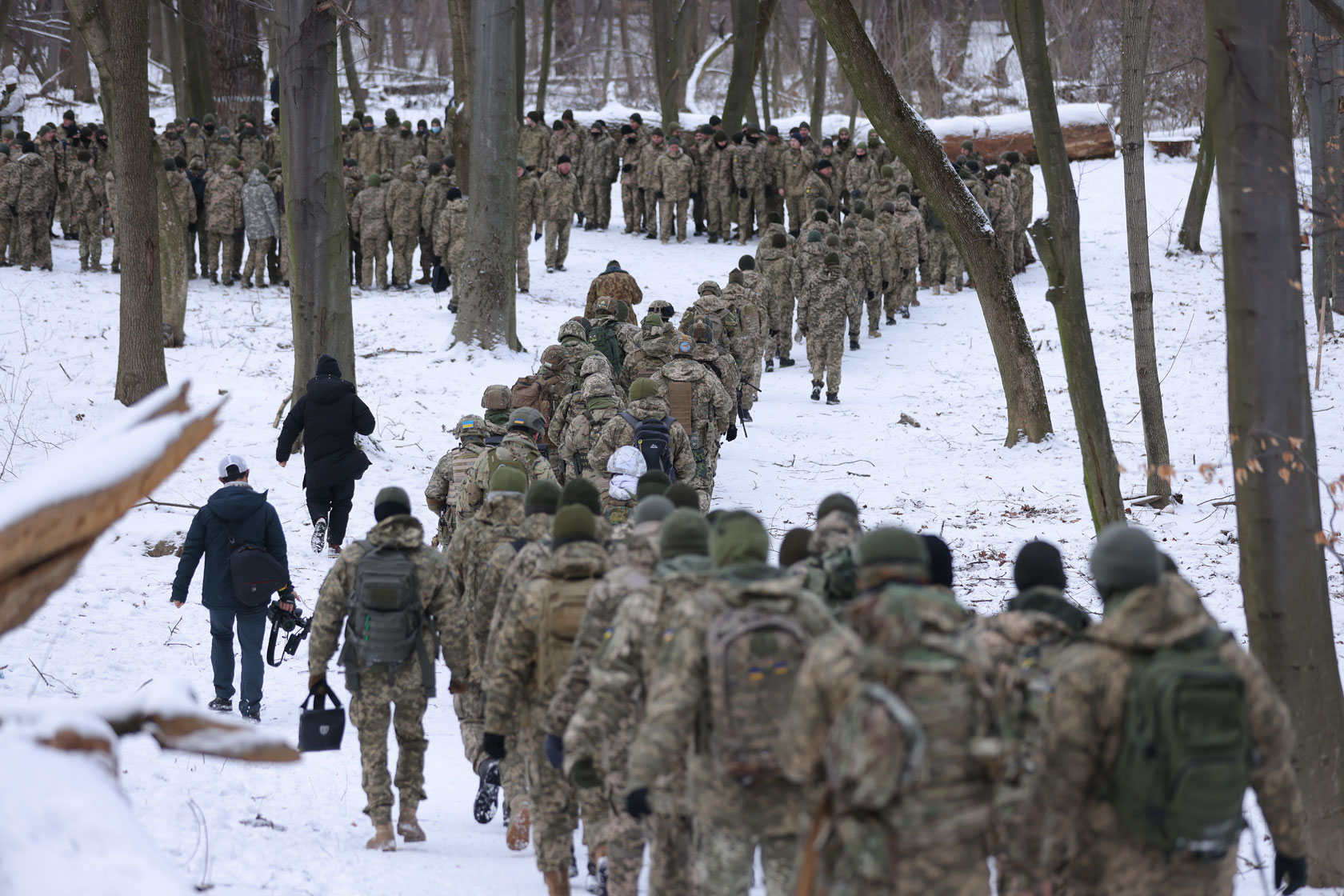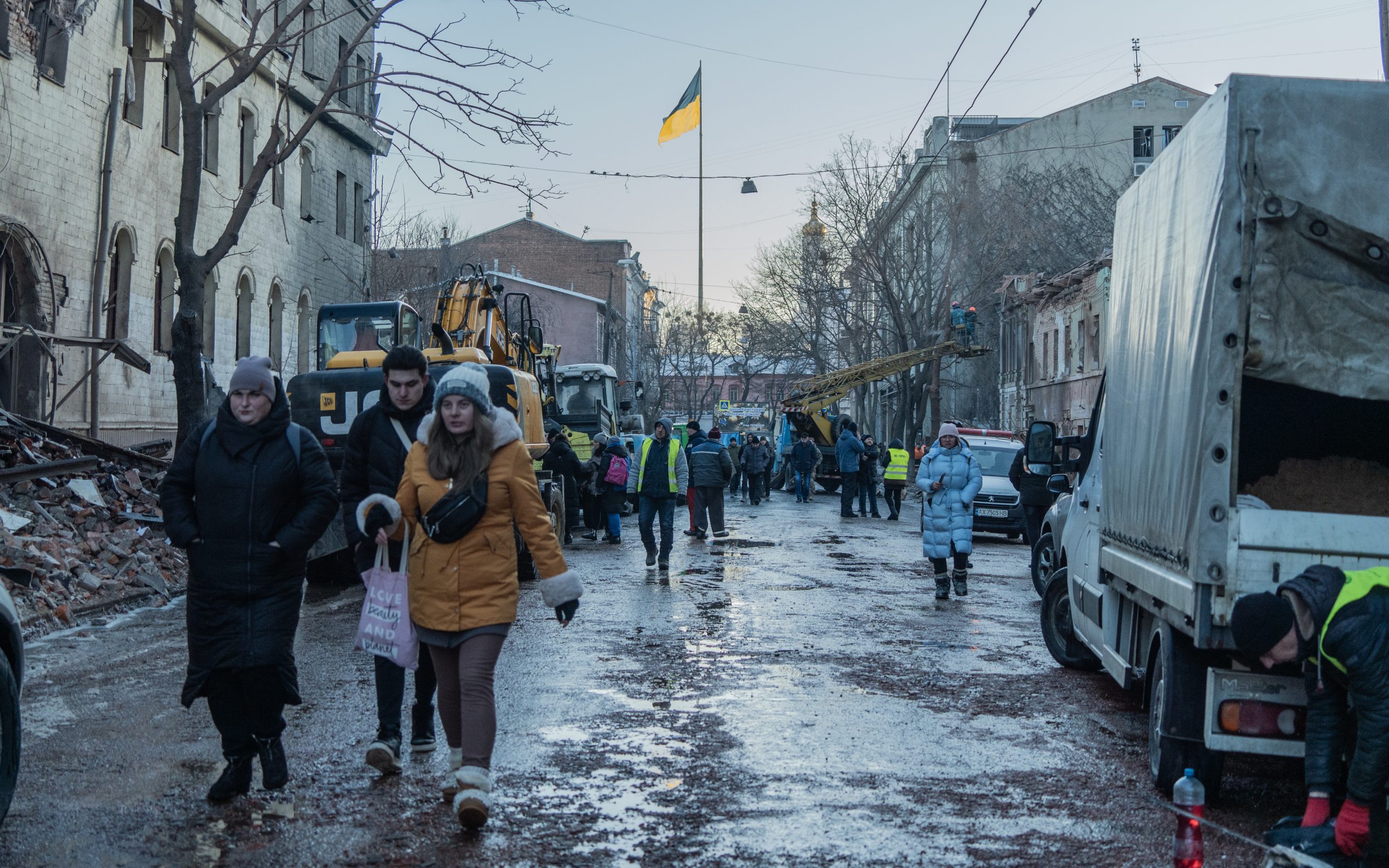The ongoing conflict in Ukraine is approaching its third year with no signs of a ceasefire. Despite this prolonged situation, it is evident that many in the West are growing impatient with the existing stalemate and are hesitant to continue providing military support to Ukraine.
Influential figures in the West, such as the late Henry Kissinger, former President Donald Trump, and high-ranking NATO official Stian Jenssen, have raised the possibility of Ukraine ceding land to Russia in exchange for peace.
As an expert on Western military interventions in transnational ethnic conflicts, I have observed how well-intentioned peace agreements, offering concessions to the perceived aggressor, can unintentionally sow the seeds for renewed conflict by rewarding revanchism – a state’s policy to reclaim previously held territory.

A Peace Agreement Imposed by the West in Ukraine Poses the Risk of Fueling Russia’s Territorial Ambitions (Credits: Getty Images)
The conflicts in the former Yugoslavia serve as historical examples. Over 20 years since the end of the Yugoslav wars, the region still grapples with tensions.
Serbia’s pursuit of unifying Serb-populated lands, coupled with NATO intervention and Western-imposed peace plans, has not completely stabilized the situation. The Balkan path illustrates that Western-sponsored treaties sacrificing land for peace can stir up trouble in the future, especially with revanchist nations.
Russian and Serbian revanchism has been apparent since the breakup of the Soviet Union and Yugoslavia in the early 1990s. Examples include Russia’s interventions in Transnistria, Abkhazia, South Ossetia, Georgia, Crimea, and the Donbas. Serbia, too, has sought to reclaim dominance in the former Yugoslavia, leading to ongoing tensions in the region.
The peace treaties in Bosnia and Kosovo, intended to stabilize and bring lasting peace, have faced challenges due to the terms of settlement. The Dayton Accords in Bosnia awarded a significant portion of the territory to the Serbian Republic of Srpska, leading to current tensions and attempts at secession. In Kosovo, European Union-sponsored agreements have not prevented security threats from Serbia.
Drawing parallels to Ukraine, adopting a similar peace model could result in the reorganization of the country, potential Russian influence, and complex political arrangements that may lead to institutional dysfunction and instability.
The current Western support for Ukraine’s defense may involve heavy participation in peace negotiations, but past indicators suggest that a land-for-peace approach might not appease Russian revanchism and could, instead, fuel further territorial claims.
While a peace plan based on territorial concessions may seem like an off-ramp to war, history suggests it could inadvertently empower aggressors and leave the affected nation feeling betrayed. The West must carefully consider the lessons learned from previous conflicts to ensure a more sustainable and lasting resolution in the case of Ukraine.























